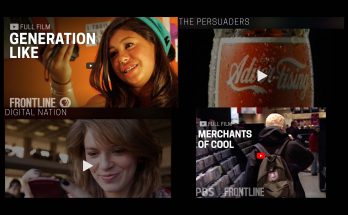“How the next generation is reshaping political discourse”
MIT Technology Review, June 30, 2021
Opinion
by Kiara Royer
“The rise of social media and being always online is changing the nature of civic engagement.”
Last summer, my friend Jessica Rosberger texted me with an idea. “I think I may have something,” she began. We were about to graduate from high school and had spent the last three months of senior year taking classes at home because of the covid-19 pandemic, and lately we’d been following the news of racial justice protests around the US in the wake of George Floyd’s murder.
An hour and a half later, we published Jessica’s idea as an online petition. In it, we argued that former attorney general William Barr, who graduated from our high school and was given the Distinguished Alumni Award in 2011, had violated the school’s core values with his involvement in the violent removal of protesters from Lafayette Square in Washington, DC, on June 1, 2020. We hoped our petition would encourage the school’s alumni council to rethink Barr’s award.
Jessica and I coordinated over Google Docs, talked with reporters and alumni over Zoom, and shared the petition on Instagram, Facebook, and Twitter. By July, it had more than 8,700 signatures, was cited in an op-ed in the Washington Post, and propelled us to a virtual meeting with the alumni council.
It was my first taste of the power of using the internet and social media as political tools. Unfortunately, it’s a feeling that’s still too rare, even for my generation—young citizens’ opinions are rarely consulted in social or political matters, even though digital platforms have provided us with a voice and a way of expressing it earlier in life (an estimated 81% of teenagers 13 to 17 are now active on at least one social media site). That may stem from a feeling that our voices don’t matter because we cannot vote until we turn 18. But most of us will be able to by the next presidential election in 2024, if not sooner.
Digital platforms have the potential to redefine civic engagement and allow the opinions of both young and old people to play a deeper role in policymaking. As my generation speaks out online, the lawmakers who are shaping our future will need to figure out how best to listen to those of us who will live in it. Otherwise, young people’s enthusiasm for politics could dry up. At a time when our trust in government is nearing historic lows, the future of political participation is at stake.
Digital democracy
The idea that some combination of technology and a new generation is redefining politics is not new—the same thing happened with the radio, and later with television. But social media, in particular, has brought unique changes. That means my generation has a special role to play in figuring out how these platforms get used.
About the Author:
Kiara Royer is a sophomore at Williams College majoring in history and political science.






